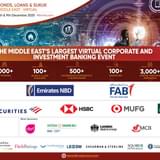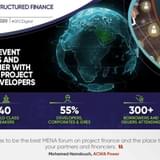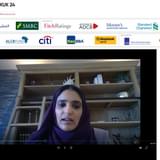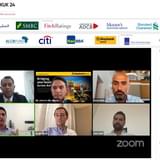Argentina and Qatar have agreed to set up a US$1.3bn joint investment fund that will finance infrastructure and other projects in Latin America’s third-largest economy.
Qatar’s sovereign wealth fund will contribute US$1bn to the trust, while the remaining US$300mn will be sourced from Argentina’s state pension agency ANSES.
According to Argentina’s Telam, the fund – announced during a state visit to Doha by Argentine Vice President Gabriela Michetti – is part of President Mauricio Macri’s US$26bn infrastructure programme over the next four years.
The government hopes to raise infrastructure investment from 3% to 5% of the country’s GDP, with the bulk of funds coming from the private sector and public-private partnerships (PPPs). To encourage capital flows, special PPP legislation was recently passed by Argentina’s lower house, and is now pending approval in the Senate.
Among other measures taken by Macri’s administration to lure investors are initiatives such as waiving taxes for exports, removing restrictions on imports, creating online service for public tenders and establishing a special trade and investment agency.
The fund is also expected to pave the way for stronger bilateral trade and investment links between Argentina and Qatar. Trade volumes between the two countries reached about US$181mn in 2015, with Qatari exports to Argentina standing at US$147mn, whilst imports stood at US$34mn.
The agreement could develop a market for Argentine exports to the Middle East, particularly agricultural goods, where 85% of the food consumed in the UAE alone is imported, according to Michetti, quoted by Telam.
"This is an enormous opportunity for Argentina with a country that wants to be the logistical and commercial centre of the Middle East," she was quoted as saying.
According to Jahangir Aka, an UAE-based investment manager at Neuberger Berman, this deal is consistent with Middle East’s growing presence in emerging markets.
“These are not unusual countries for Qatar to conduct bilateral trade deals with. Argentina has restructured and reformed significantly, its prospects are positive – it is one of the most encouraging stories in Latin America at the moment and a great destination for investment.”
Some reports indicate that Argentina’s ambassadors have also held discussions with other GCC members, namely the UAE. While no announcement has been made yet, experts agree that there are more deals in the pipeline.
“Middle Eastern investors already have a strong presence in the region, so in that sense this deal is not a big surprise,” Aka noted. “For example, Mubadala has operations in Brazil. Sovereigns make no secret of the fact that they look for opportunities that promise long-term growth, and Latin America has been on their map for years.”
But other experts are so far unconvinced of an emerging link between the two regions
“There is no natural connection between ME and Latam,” argued Greg Saichin, Chief Investment Officer, Global Emerging Markets Fixed Income at Allianz Global Investors. “I do not believe that GCC investors are going to become a visible player in Latin America for now. They mostly focus on their own region – Turkey, Egypt, Malaysia, Indonesia, for example. These are the areas they are familiar with, there is also the Islamic connection.”
Although persistently deflated commodity prices, notably oil, continue to take a toll on Middle Eastern economies, current liquidity problems are not expected to have a great impact on a sovereign’s strategic investment patterns.
“People often make the mistake of confusing cash flow with capital investment. The sovereign wealth funds have continued to have significant investment pots in the region versus recent debt issuances of US$45bn to support cash flows.”
“In proportion to the amount of assets they possess globally, or to their FX reserves – it is not even a dent for countries like Qatar, Kuwait or the UAE – their deficit is small relative to the assets and the revenues they continue to generate,” Aka said.
However, announcing a deal is not the same as going through with its implementation.
“It is very difficult to assess the importance of Latin American assets in GCC investors’ portfolios, but I suspect, given the sheer size of the investment book, that a small allocation to Latin America represents a fairly large absolute quantum in real terms,” Saichin argued.
“As for Argentina particularly, the goal is to raise direct investment in upstream oil and gas. In the specific case of Qatar, a big supplier of LNG to Argentina, the initiative is to get them to invest in onshore fields. But there is no new “magical connection” between the two regions, as far as I can see,” he concluded.
Securing foreign capital inflows at this stage is one of the key goals for Buenos Aires, particularly after a five-year long investment drought. The country experienced a downward investment trend between 2012 and 2015, with only 280 FDI projects providing a total capital investment of US$16.8bn.
Capital investment slowed dramatically in this period. The country secured US$5.81bn in capex during 2012, but by 2015 this fell to US$2.86bn – a 50.72% drop. For Qatar, this provides an opportunity to increase its stake in a US$586bn economy, especially if corporates follow the sovereign’s lead.
“Deals like this make commercial sense,” Aka concluded. “And there are also private agreements that are happening separately, so overall investments in Argentina already exceed the US$1.3bn agreed by Qatar and Argentina.”
Argentina’s debt became some of the most attractive in the region after the country reached an agreement with its holdout creditors. Analysts expect economic growth to reach about 3-4% next year, after a contraction of up to 2% in 2016.









